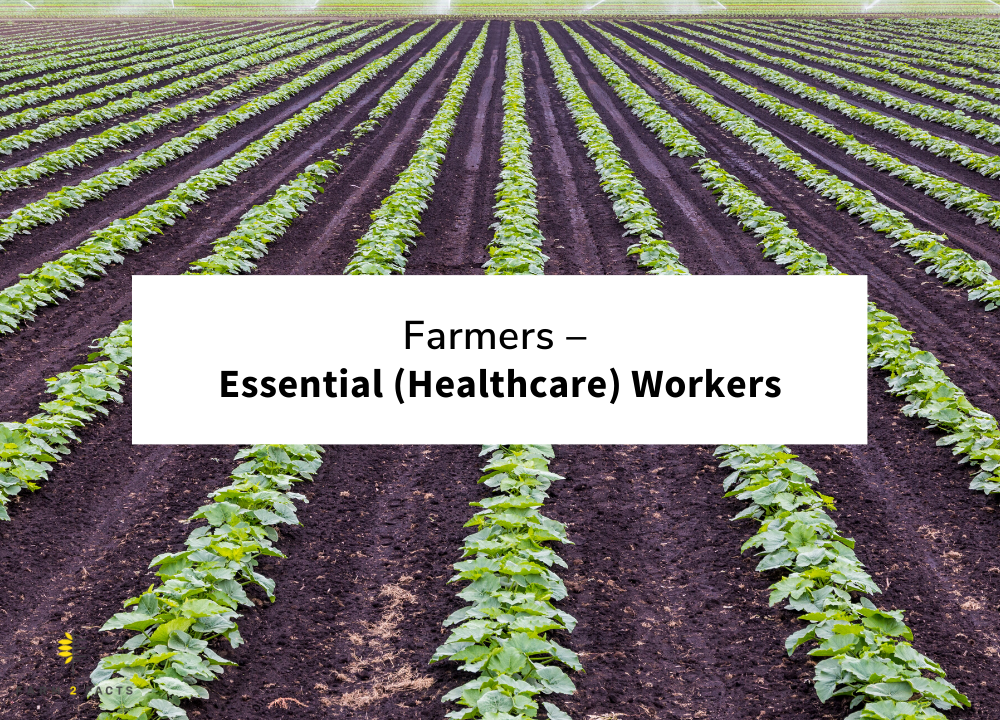
Like many of our society’s systems, the COVID crisis has challenged our nation’s food system.
Ricardo Salvador of the Union of Concerned Scientists voiced a fundamental flaw about our food system which has been made apparent during the pandemic: “The so-called efficiencies that have been built into the highly specialized industrial model that we have right now, we are now learning, do not serve us when you have a situation where a single thing that is unpredicted takes out one pillar of the food system, and then the whole thing comes crumbling down.”
Over the past several months, the efforts of healthcare workers to keep people safe and keep our society going have been celebrated, rightfully so. Across the country we’ve seen supporters line up in their cars to play music for health workers leaving work in Topeka, Kansas. In New York City, residents near the Brooklyn Medical Center bang pots and pans from their windows and balconies to support healthcare workers. Flowers originally intended for the Boston Marathon were reused to create a heart shape ring around the Beth Israel Medical Center. This outpouring of love and support for health care workers recognizes the often-unsung work of health care workers and expresses the desire for individuals to contribute in their own way to the collective effort to keep everyone healthy.
As Ricardo Salvador and so many others challenge us to rethink our systems – particularly under this current crisis – we should ask ourselves…
Who else beyond hospital and health clinic workers are ‘health care’ workers?
We can see that the expression “an apple a day” has been fully embraced by the dramatic increase in awareness about the health benefits of fresh fruits and vegetables. Many of us have also come to understand food that travels long distances can lose nutrient value in transport. Likewise, that same food shipped long distances often has far less nutrient value in the first place, as it is harvested early to ensure it survives its long journey. So, if fresh, locally grown food is medicine, let’s not forget that it takes a lot of work to grow that food.
Given this – should we consider farmers and farm workers as not just essential workers, but essential healthcare workers? While it may be a step too far to say our farmers are doctors, in the case of a pandemic, the interaction between the two professions may be more important than ever. With the current burden on our health care system, let’s remember that eating an apple (or other locally grown produce) to keep the doctor away plays an important role in reducing the burden of the healthcare system. If we celebrate health care workers when they leave their shift, perhaps we can also celebrate them by going to the farmers market and getting our ‘preventative medicine.’
Farmers Markets Offer a Rare Chance to Say: Thank you to Farmers
With this in mind, we want to reflect on the essential work of farmers and farm workers. While most farmers may not live and work close enough to large population areas for residents to line up their cars next to the farm or bang pots and pans to celebrate farmers walking home from a long day – farmers markets create a rare opportunity to directly connect with farmers and express our gratitude for their effort to keep us fed and so much more! With the farming season underway, the Farm 2 Facts team wants to say a big thank you to farmers and encourages everyone to do so as well.
If you have a new and interesting way to thank a farmer this summer, connect with us on social media and let us know.
